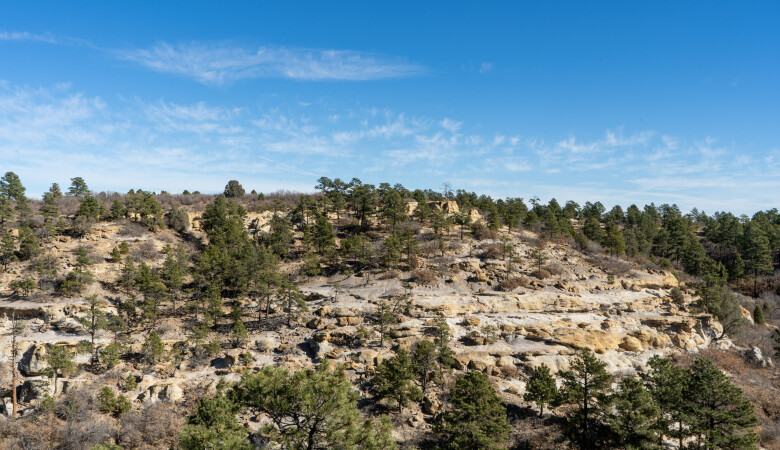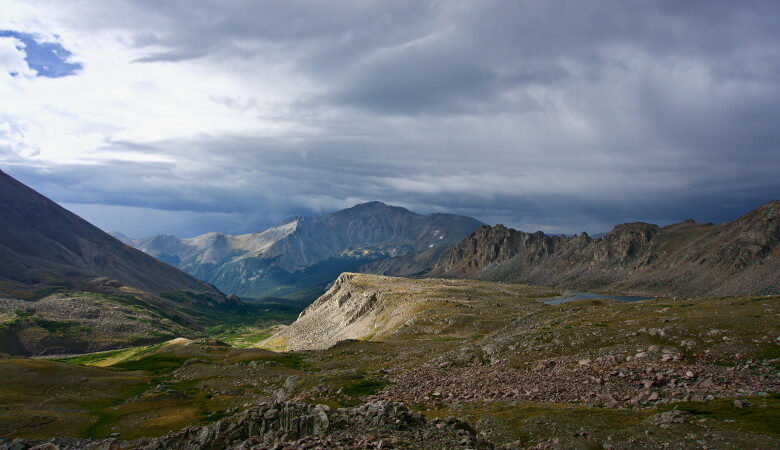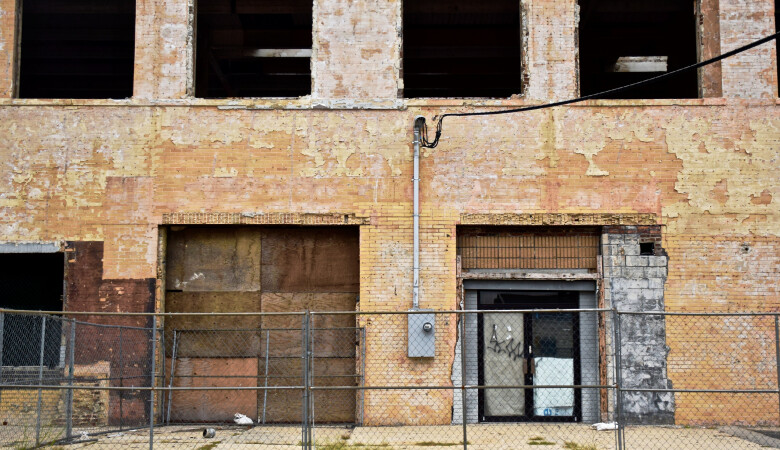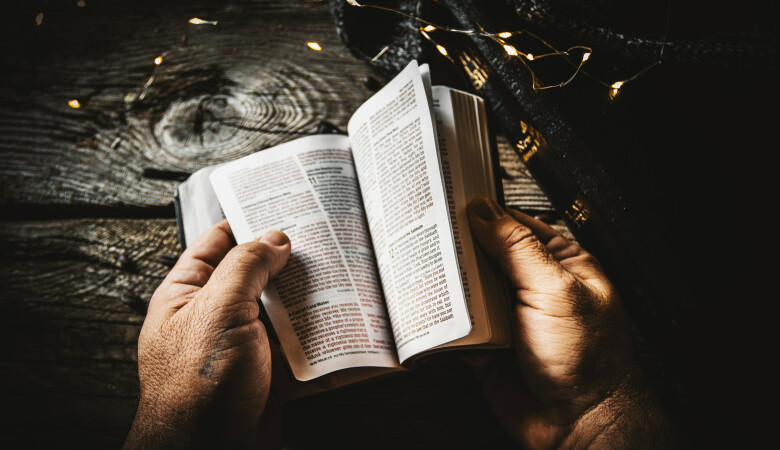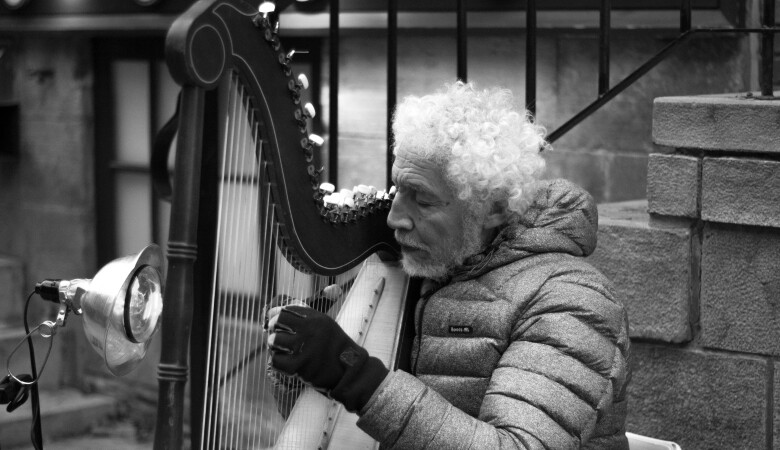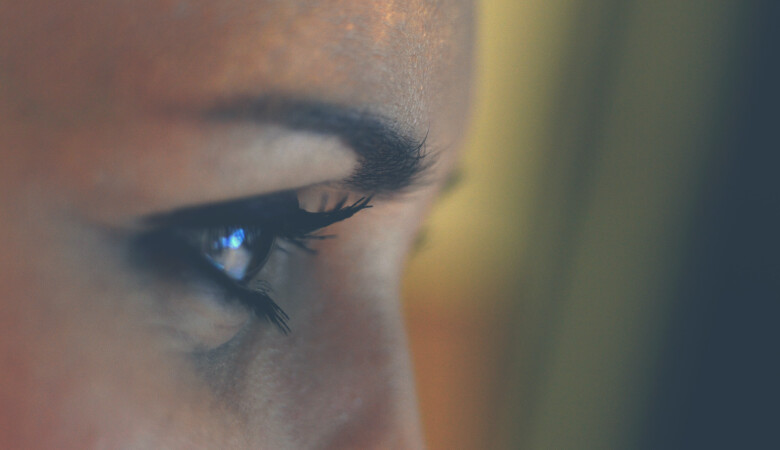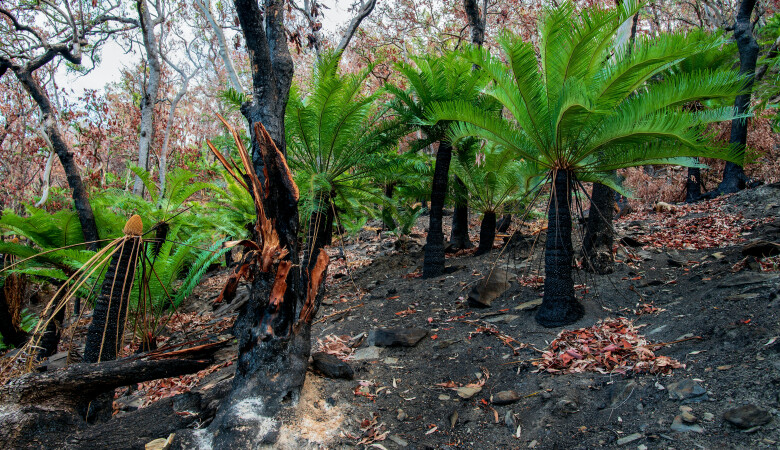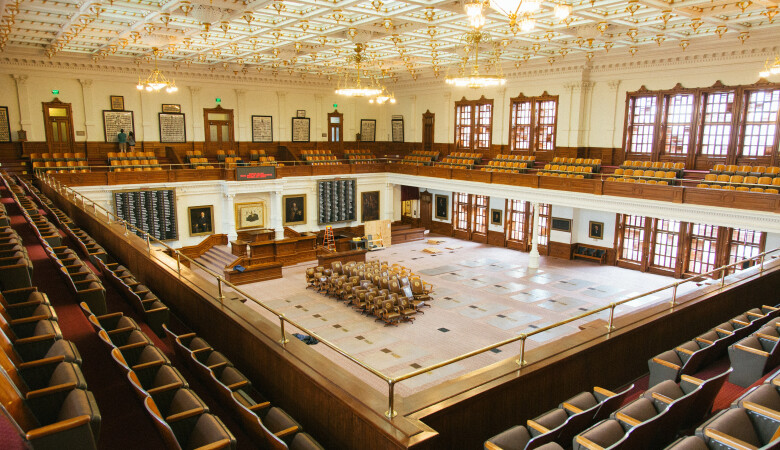Gentleness Triumphant: Bruised Reed and Smoking Flax (Matthew Sermon 52 of 151)
April 13, 2003 | Andy Davis
Matthew 12:20
Introduction
We're going to look primarily at one verse this morning, Matthew 12:20. I'm sure that many of you were following the events of this week. When the coalition forces moved into Baghdad, they did so on the strength of over-powering military force, M1A1 Abrams tanks, total air superiority, and Marine detachments and all of that. The reason is because that’s the way that earthly empires rise and fall. That's how it happens. And so, it has been. We saw the toppling of a regime this week, the pulling down of Saddam statue, a good indication of that, but that's how the coalition forces rode into Baghdad. How did Jesus ride into Jerusalem? Interesting, isn't it? The contrast. I've said before, "You can't do much militarily from the back of a donkey." It's really not much you can do, you're pretty low to the ground, you don't move fast. They're not very smart or willing, and so it's really not a good tool for conquest that way. Yet there was a greater force in the gentleness of Jesus than in all the military force that we've ever seen in history put together, greater force for the conquest and the pulling down of an evil empire. "Do not be afraid O daughter of Zion; See, behold, your King comes to you gentle and humble riding on a donkey, on a colt, the foal of a donkey." A gentle conqueror. Now, that's an anomaly, something we can't figure out, but he has that kind of power, doesn't he?
I have the great joy of standing before you, proclaiming one of the most encouraging messages I've ever heard in my life. I've thought about this for 18 years and feasted on it all this time. I related two weeks ago that I used to go out on Sunday afternoons and just find a pleasant place outside under a tree maybe, and I would just read the scripture. but I'd read other things. One day I came across a sermon by a Puritan named Richard Sibbes called,” The Bruised Reed and Smoking Flax." I've never forgotten what I read there because there is portrayed a gentle Savior who doesn't give up on sinners like me. He works with weak building materials, like me, to build an empire, a kingdom that will last forever and ever. That's encouraging because I see my sinfulness, I see my brokenness, I see my weakness and to know that there's a savior who can use someone like me, and that He doesn't give up on me. He's so wise and careful and perfect in how He deals with me in my sin, and how He works with me is encouraging. Do you ever feel, yourself, like a failure, in your Christian life? Do you ever feel the weight of your own sin like you're useless to God, that you're going to be disqualified, that God could never use someone like you? Do you ever wonder how you're going to survive decades more temptation in this wretched world and make it through? Do you ever wonder about those kinds of things? Have you ever been grieved to your heart over the mixed nature of your walk with Christ? Has it ever bothered you that you're not more undivided in your attention for him?
That's wonderful, as a goal, but let me tell you something, I am not totally consumed for Christ. There's not much “totally” in my life, not the way it should be. It bothers me. It bothers me that I'm not totally sold out for Jesus.
The Gentleness of Jesus
This text is for you, the savior of this text stands here for you as your gentle conqueror, as your Savior. It's a triumphant message, "The bruised reed, He will not break, and the smoldering wick, He will not snuff out until He leads justice to victory. In His name the nations will put their hope." What a message, what a message. We could never have put this together, could we? This is not coming from the imagination of a human being, it's not the way we do things. But it is the way God does things. The basic idea in this text is that Christ is powerful enough to be gentle with sinners like us and triumphant in the end. He's powerful enough to use broken, sinful people, like you and me, to build a kingdom that will last forever, but there's a little secret in here that isn't obvious in the text. He is our Savior, an oasis of gentleness in a harsh world. It is a harsh, world isn't it? Governments are harsh, sinners around us are harsh, false religious systems are harsh and tear us down. The devil and his angels are harsh and vicious, relentless. It’s a tough world, and Christ is an oasis of gentleness. He stands before you and says, "Come to me, all you who are weary and burdened and I will give you rest. Take my yoke upon you and learn from me, for I am gentle and humble in heart". “That's the way I conduct my business. You'll find that my yoke is easy, and my burden is light.”
That same Savior says this: “A bruised reed I will not break, a smoldering wick, I will not snuff out, until I lead justice to victory". What's the context? We looked last week at it. I'm not going to spend a lot of time this week on context, but I just can't preach on a single verse without setting it in context. The context overall in Matthew's Gospel is the kingdom of heaven, and Christ is being portrayed right in the center, as the king of the kingdom of heaven with his credentials laid out before us. We've talked about it, his genealogy establishing him as the son of David, his baptism as the son of God, and the miraculous events of his birth also as the Son of God. He's the son of David, the son of God, he calls himself son of man. We have the incarnation, the God man who is setting up a kingdom, and He does it by means of miracles in Matthew 4, and then again in Matthew 8 and 9, just one after the other. There seems to be nothing he cannot do. His is incredible teaching as we had in the Sermon on the Mount, the greatest sermon that's ever been under Jesus' proclaiming.
The Sermon on the Mount beginning right from the start, "Blessed are the spiritual beggars for theirs is the Kingdom of Heaven.” Right from the start, speaking this way. We see that He's the king of the Kingdom of Heaven. But then in chapter 11 and 12, we begin to get returns. We begin to get human responses back to that kingdom. How are they responding to Jesus? It's not good. He's being rejected actually. Even John the Baptist doubted and wondered if he was really the one who was to come. Chorazin, Bethsaida and Capernaum, Jewish cities rejected him, not interested, even though all of his miracles had been done there. Then in Matthew 12, we have the religionists, the Jewish leaders, the Scribes and Pharisees, these powerful people attacking him because he's too gentle on the Sabbath. He's breaking their rules. He's healing people on the Sabbath and they're attacking him.
In verse 14 of Matthew 12, you'll notice that they, on the Sabbath, plot to kill him. They're going to seek to kill him. As I've mentioned before, they will succeed, won't they? That's what we think about this week, the death of Jesus on the cross. There was a human aspect to that, and it was the hatred and the jealousy and the opposition of these Pharisees, so Jesus aware of their plot, withdraws. He pulls back. He doesn't go on the offensive. He doesn't attack. If he had wanted to do that, he could have done it right from the start. Twelve legions of angels would have been sufficient to wipe them out. He didn't need the angels, but that wasn't his approach. Instead, he's gentle and as he pulls back, all of these sick people come to him and he heals them.
Matthew, with the eye inspired by the Holy Spirit, sees their fulfillment. He's always seeing fulfillments. When Jesus rides on the donkey, it's Zechariah, that's being fulfilled. When Jesus heals all of these weak and sick people, Matthew sees a fulfillment. In Isaiah 42 he said, "Behold, my servant. Look at my servant, my chosen one, the one I love and whom I delight. I will put my spirit on him, and he will proclaim justice to the nations. He will not quarrel or cry out.” No one's going to hear his voice in the streets. "A bruised reed, he will not break and a smoldering wick, he will not snuff out until he leads justice to victory in his name in which the nations will put their hope.” Jesus is not behaving the way you're supposed to behave. If you're going to set up a big powerful kingdom, it's not the way it's done. And as a matter of fact, his brothers struggled over this, didn't they? They gave him some PR advice. “The things you do, Jesus, come here, Jesus, the things you do are amazing, but let me tell you something. You don't seem to realize how people think. If you want to set up a kingdom, this is not what you do. This is the big feast time." [John 7] “You go down to Jerusalem, to the big population center, and you find the strong movers and shakers. You get them into a coalition, and you move and nobody's going to be able to stop you. We've seen what you can do. We've seen the power you have. Nobody who wants to become a public figure act like this." Even his own brothers did not believe in him says the scripture. They didn't trust him, not just in terms of his miracles, but in how He's going about building his kingdom. He's not doing it that way, and He's pulling back. He's doing it a different way. He says, "My kingdom is not of this world. I'm not going to enter Baghdad or Jerusalem or any other city the way that the armies do. That's not what I do. I build my kingdom a different way and I'm going to win. I'm going to be triumphant. I'm going to do it with gentleness," and so He does.
The Bruised Reed & Smoldering Flax
Now what is a simple explanation of the one verse? There's the context. "A bruised reed he will not break, and a smoldering wick he will not snuff out." What does that mean? We have to understand what a bruised reed is and what a smoldering flax or wick is. Simple description is, we've got descriptions here of worthless, useless frailty, isn't that what you've got? With a bruised reed and a smoldering wick, these are pictures of worthless, useless frailty, obnoxious frailty even. Reeds were used for many things back in Jesus's day. They would use them for writing because they had little tubules. Or you could use them for playing music, a musical instrument. But I can tell you right now, they will not function well in either way if they're bruised, creased or maybe ripped a little.
I was speaking earlier to somebody who knows some things about finances. What do you think is the market value for a bruised reed? It's a picture of worthlessness. When you have a bruised reed, what do you do to it? You throw it out and you get another one, one that works. Jesus doesn't throw it out, he works with it. He doesn't break it. It's not completely severed in the end. He uses it, works with it.
What about a smoldering flax? A ceramic dish, which would have a combustible oil, olive oil perhaps, and then there would be the wick and the wick would go down... Have you ever... You've seen a hurricane lantern, perhaps that would wick up the oil, take it up and then you would light it and it would glow and it would give lights to the house. Well, what is a smoldering wick? It's one it seems in which there's impurities. Something's wrong with it. It's not just giving out light, it's giving out obnoxious fumes, smoke. It's smoldering. Now how expensive do you think a new wick would be? Throw it out. Stamp it out, throw it out and get a new one. It's a picture of worthlessness, of rejection and of frailty and uselessness and he doesn't do it. He doesn't throw it out. He doesn't extinguish it.
He works with it until it's not smoldering anymore because he's going to bring justice to victory. He's going to keep working with it. That's the idea. The idea is of Christ's gentleness and patience. You really think we're talking about bruised reeds and smoldering wicks? We're talking about people, aren't we? We're talking about people, and he works with sinners who are very much like bruised reeds and smoldering wicks. He works with them until he's finished. And when he's finished, his kingdom has come, and it's glorious. That's the basic idea. He's very patient. He's wise and gentle and working with sinners until he's finished with them. And what is his destiny in the end? He's going to succeed, isn't he? Until He brings justice to the nations, He's going to win, He's going to be victorious. He's going to do it His way, in a way that we never would have done. He's going to do it His way and, in the end, He's going to be victorious.
Last time we focused much more on the big picture, worldwide. I want to zero in on you as a child of God. He's going to win in your life, isn't that encouraging? He's going to keep working on you until He's finished with you, if you're a child of God. We're going to look at four encouraging doctrines. First whom Christ chooses, secondly how Christ bruises, thirdly why we smolder now and fourth how we will shine forever for eternity. We'll look at that and that's going to be the meat of what we're going to look at. And then we'll go briefly into some quick descriptions of Christ and of us and apply it.
Whom Christ Chooses
First: Whom does Christ choose for His Kingdom? The basic idea here is that Christ chooses worthless, broken people to enter His kingdom, and He gently binds them up and uses them to advance His Kingdom without destroying them. A bruised reed He will not break. The Scripture here, I believe, is calling us bruised reeds. That's what we are. In a way it's offensive if you really stop and say, "I don't think of myself that way, I don't like to think of myself as a bruised reed." Well, that's what you are. You're not a mighty oak, a strong redwood. No, not at all. You're a bruised reed. Think of what Paul wrote in first Corinthians 1:26, "Brothers think of what you were when you were called. Not many of you were wise by human standards, not many were influential, not many were of noble birth, but God chose the foolish things of the world to shame the wise. God shows the weak things of the world to shame the strong. He chose the lowly things of the world, and the despised things, and the things that are not to nullify the things that are, so that no one may boast before Him." Is there going to be any boasting in the Kingdom of Heaven? Oh yes, there'll be boasting, but it won't be about us. We'll be boasting about our Savior Christ. The one who can build a kingdom out of bruised reeds and smoldering wicks. They are feeble, they are weak, they're bruised reeds, no one enters the kingdom, healthy, strong and mighty. No one.
How do you enter the kingdom? Blessed are the spiritual beggars, the destitute, for theirs is the kingdom of heaven. Jesus said it this way, it's not the healthy who need a doctor, but the sick. What kind of surgical precision would it take to work with a bruised reed and not break it? Isn't that incredible? We've already decided we're not going to throw it out, but now we need to work with it. How are we going to bind it up? How are we going to make it right again? The wisdom, the gentleness, the precision to work with sinners until they're strong and healthy, this is incredible. Christ chooses bruised reeds. He chooses to work with them. And if you say, "I'm not in that category," then you don't need a savior. You don't need a savior; you don't need Jesus. But you know you do. You know you do.
How Christ Bruises
Secondly: How Christ bruises. Now you say, "Wait a minute, I thought we're going verse by verse. Show me how Christ bruises in this text." I'm telling you already, it's not there. But I know from scripture and I know from personal experience that He's the one that does the bruising. He is the one that bruises. Christ is the one who works in us and He does it for our own good. He does it to break us of that wretched demonic pride that will sink us to hell if it's not broken. That self-reliance, that has us able to do it on our own, where we don't need a savior. He's got to bruise us, He's got to pierce us, He's got to wound us, so that we give it up. So, we stop relying on ourselves and what we can do and our good works and all that. He's got to bruise us. We are kind of in the machinery of this sinful world bruised by sin, aren't we? There's just a machinery, you imagine farm equipment and just getting wrapped up and just bruised by the sinful machinery of the world, it happens, and it hurts, sin bruises us. We can be bruised just by being in this sinful world. We can be bruised directly, individually by the sins of others, other sinners can bruise us. An abusive spouse could bruise us. An abusive tyrant, dictator who's ruling, your nation can bruise us. A wicked criminal who puts a gun to your head and steals all your possessions can bruise you. Ordinary sinners day after day in the office, in the neighborhood, they just bruise us. But then again, we bruise them too, don't we? We're bruising each other, and this is what sin does. But I want to look beyond that to look specifically into how Christ bruises sinners. What does He do? Well, He does it for a different reason. He does it to save us. He does it to break us down so that we recognize we need a savior. We must be in effect stricken in our hearts or we will never turn to Christ. We need to be somewhat pierced; we need to be made spiritual beggars. You have to realize that you are a ptochos, a beggar. [Matthew 5:3], or you won't come to Christ and ask. Luke 18:13, "The tax collector stood a distance, he would not even look up to heaven but beat his breast... " [There's a piercing there] “and said, "God be merciful to me, the sinner."
That's not our natural state, is it? You have to kind of be worked to that point. That's not where we usually are. He went home justified. So, He's got to bruise us to get us to that point. Through the convicting work of the Holy Spirit, Christ bruises us most severely. In John 16:8 it says, "When He, the Spirit comes, He will convict the world of guilt in regard to sin and righteousness, and judgment." And He bruises us when we read the scriptures, as unconverted people. We're reading the scriptures and we begin to see the sin in our lives, and we begin to cry out against our situation. We feel the wrath of God, the condemnation for our sins, and it's pressing on us like a weight, a sense of guilt. Bunyan and Pilgrim's Progress begins with Christian with a heavy weight on his back and a book in his hand, and he cries out, with a lamentable cry saying, "What shall I do?" There's a sense of that bruising that's going on. He's hurt because of his own guilt. Well, who's doing the bruising? It's Christ through his spirit. He bruises us when he makes it clear how devastating sin is by not shielding us and protecting us from its devastating consequences.
The Prodigal Son, when does he come to himself? When he's slopping pigs and they won't even give him any of the pig food. That's when he says with enlightened self-interest about to kick in here. “This is a terrible way to live.” Well, that's a bruising isn't it? You just go down and down, until you hit rock bottom and you begin to say, "I need a Savior. What's going on in my life?" It’s Christ that's bruising you, he's waking you up to the damage that sin does. When it's time to convert us, He lays us low again by the preaching of the Word. Peter stood up at Pentecost, and proclaimed a powerful message of salvation through faith in Christ and also of the threatened wrath of God against those who would not repent and when his neighbors, fellow Jews, heard him, they said, in Acts 2:37, “They were cut to the heart.”
That's a kind of bruising, isn't it? Who did that cutting? It's the cutting of a surgeon. They said, "Brothers. What shall we do?" And Peter said, "Repent and be baptized." This is very noticeable, especially during times of revival. During the Great Awakening, George Whitefield went out into the fields to preach and he went down to the coal miners. I've told you this story before, I just love it. They are not used to going to church. You need nice clothes and all that. It's just for wealthy people. They didn't go. He went out to them out in the fields and began to preach and these were some of the roughest toughest, hardest characters you'll find anywhere in England. They were drunkards, they were violent men, criminals, many of them, and yet they wanted to hear Whitefield. Anybody who'd come out and preach in the field is at least a spectacle. Well, as he would preach, the fear of God came upon them and the conviction, the work of the Holy Spirit, and as they heard him, you could see the tracks of their tears, literally, on their soot-covered faces, the breaking and the pain of conviction of sin and a yearning for forgiveness. That's a bruising work, isn't it, that Christ has done? He's made them ready, and they want Christ.
So then, we came to faith in Christ. Is the bruising work over? No, really just beginning, in some ways. Now He really starts to work on us. By the indwelling Holy Spirit, He begins to make us hate sin. How does He do that? He bruises us. He convicts us. He does it primarily by means of the Word of God. Hebrews 4:12-13 says the Word of God is living and active, sharper than any double-edged sword, it penetrates. It pierces us, even to the dividing of soul and spirit, joints and marrow. It judges the thoughts and attitudes of the heart. Nothing in all creation is hidden from God's sight, everything is uncovered and laid bare before the eyes of Him to whom we must give an account. That makes me feel uncomfortable with sin. He's piercing, he's bruising us so that we will hate sin working on us. He bruises us through His providential control of circumstances in our lives, He's controlling, he's got all the knobs and levers at his disposal. He can do anything he wants to your life. And so therefore, if you love perhaps material possessions, too much, does He have the power to tweak something here, so that you don't love them as much? Yes, he has the power to do that.
He bruises us through control of circumstances. Are we given to anger, and conflicts and temper? Maybe we have an interaction, we lose a good friend. We come back to God and we say, "What happened there?" and He convicts, He bruises. Yet Christ is very wise in how much and how far He bruises us. It says the reed will bruise but it will not break. He knows how far to go, doesn't he? He's very wise in this. Deuteronomy 32:39 says, "See, now that I myself am He. There is no God besides me, I put to death, and I bring to life, I have wounded, and I will heal." Did you hear that? Deuteronomy 32:39, "I have wounded, and I will heal." Christ bruises us, He works on us so that ultimately, we rely only on Christ. Sibbes put it this way, "Like a frail vine leaning on a mighty oak, so are we trusting in Christ."
Why Do We Smolder?
Thirdly: why do we smolder now? First of all, you can't smolder if you're not on fire. There's got to be some spark, there's got to be some light, and so we've got to have the light of grace, we've got to have come to faith in Christ, to smolder. He who said, "Let light shine in the darkness," made his light shine in our hearts to give us the light of the knowledge of the glory of God in the face of Christ. We have the light of grace, the fire is on, He's ignited us, but we're smoldering. There are impurities there, there's a mixed alloying element in there. Now, grace starts small, doesn't it? In the soul, it starts small and then it grows and grows. The joy is that nothing can extinguish that spark, nothing. Christ started it, and Satan can't put it out, but he’d loved to do it. He'd like to take your spark and just stomp on it. He'd love to pour water on it. Remember at Interpreter's house in Pilgrim's Progress there's an image of a bowl. I've talked about this before with fire and it's a picture of the work of grace. There's this fire and there's the devil pouring water on it, a fire hose, just anything he can to put it out, but it just won't go out. Why not? Because behind the wall there's Christ feeding oil into the bottom and He keeps it going. The grace of God, nothing is going to extinguish it.
A bruised reed, He will not break, and the smoldering wick, He will not snuff out, but yet we smolder. why? Because we're in a mixed condition. We want to pray, that's the spark of grace, we get tired of prayer. That's the smoldering. We want to give financially, and then some thoughts creep in, and we don't give like we would like to. The spark of grace and the smoldering. We want to witness, of course we do, so we go to witness training, and then the time comes to share our faith and we pull back. That's the light, the spark and then the smoldering. It's just the way it is in our Christian life and it's in the Bible too. Remember the man who came to have Jesus heal his son, and He said, "Do you believe I can do this?" And he said, "Lord, I do believe." That's the spark of grace, what's the next thing he says? "Help my unbelief." There's the smoldering. That's us. "Lord I believe, help my unbelief." Remember in the Book of Revelation. To the church at Ephesus, He said, "You have right doctrine, you're living well, you're doing all these good things, but I have this against you, you've abandoned your first love." So, there's a mixture going on there. Peter says, "You are the Christ, the Son of living God." "Blessed are you, Simon, son of Jonah." A moment later, he is rebuking Christ for wanting to go to the cross. Isn't that us? Isn't that you? Spark of grace but then some smoldering. Christ is very skillful in dealing with you. Are you at present totally consumed with Christ? Totally consumed. That's what you've been talking about, are you? Or are you smoldering? Are you some fire and then some smoke? You see, but Christ is able to work with you until you are totally consumed. Because the fact of the matter is, He's not going to stop, fourthly, until we shine forever. He's going to keep working on you and in you until you shine like He does. It says in the Book of Hebrews that our God is a consuming fire. Christ prophesied and said, "Then the righteous will shine like the sun in the kingdom of their Father." He's going to work with your fire until it's glorious, until it's perfect, and there's no smoldering left. We will shine forever and ever.
Seven Aspects of the Savior
Now, briefly, what can we see in our Savior? Seven aspects, first Christ is gentle. Only a gentle savior could properly deal with a frail reed dangling by a thread. If you feel like damaged goods, know that Christ is gentle enough to take you in His arms and bind you up. Only a gentle savior could blow lightly on a smoldering wick until it's a stronger flame. He's the only one that can do that. And so, Christ is gentle. Second, Christ is patient. Only a patient savior could put up with us mixed, smoldering half-hearted creatures who sometimes love and serve Him and sometimes rebel right in His face. He's the only one that can do that and put up with us, only a patient savior could stay with such a gentle approach to worldwide conquest until he wins in the end.
Thirdly, Christ is wise. Only a wise savior knows how to deal with each one of you individually, dealing with you perfectly like a skilled surgeon to know what you need right now. He's the only one that can do that, He knows what you need. Sometimes He knows that we need to be gently encouraged and sometimes He knows we need to be thrashed soundly, and He knows the difference. I don't as a pastor. I pray for wisdom but only Christ has that wisdom, He knows what to do. Fourthly, Christ is gracious. Only a gracious savior could be willing to die on the cross for all of your smoldering sin. He's the only one who'd be willing to do that, to suffer under the wrath of God and shed His blood for sinners like you. Only a gracious savior would be willing to work and put up with us moment by moment, even long after we've come to faith in Christ until He leads justice to victory. Fifthly, Christ is powerful. Only a powerful savior would be mighty enough to use a frail bruised reed to conquer the evil empire of the devil. You will be perfect, you will be righteous, and He sees it, He sees you differently than you even see yourself. He's essentially optimistic, hopeful, looking ahead, because He knows nothing's going to stop the work that He's doing in your life. Seventh, Christ is holy. Only Christ, a holy Savior could refuse to allow you to stay bruised and smoldering. He's not going to leave you there, He's not going to keep you there, He's going to keep working with you until you're holy.
Seven Characteristics of the Saved
Now, seven characteristics of the saved. What are we like? What does this teach us about ourselves? First of all, that we are naturally worthless apart from Christ. I stumbled over that word a little, I thought, "Do I need to change that?" Until I found it in Romans Chapter 3, "There is no one righteous, not even one. There is no one who understands, no one who seeks God, all have become worthless." That's what sin leaves us, it leaves us of no worth to God, worthless. I know that Christ said, "We are worth more than many sparrows." So, in one sense, we are worth much, and so He died for us. But in terms of what we intrinsically are as sinners, worthless to God, that's the way we start naturally. Secondly, we are feeble or weak because of sin. We are actually very poor building material. It's not top-grade A quality stuff off the top shelf, that's not us. So, we are too feeble and weak really to build a kingdom out of on our own. Thirdly, we are unimpressive for building a kingdom, we're not a promising building site. Christ said, "A fool builds on sand." Well, He built on us. He's the only one that could do that.
Fourth, we are mixed, for we burn by grace. We have a spark of grace in us if we're born again. Now, don't misunderstand me, if you're not born again, none of what I've said applies to you except the things that He does to bruise you to bring you to Christ, now that applies. But if you are a child of God you are mixed, that means you have a spark of grace and nothing will put it out, nothing, and so we burn by grace. We love God now, we love His heaven, we love the Word of God, we love His people, we love to pray, we love to worship, we love these things. But fifth we are mixed, because we smolder with impurities. We don't love God enough; we don't love to pray enough. We don't love the fellowship of the believers enough. The very things that we tell God we hate, and we'll never do again, we do again later that day. That's grievous, isn't it? That's just the way it is. And so, we're mixed. Sixth, we survive, we're still here. I came to Christ 20 years ago, and I'm still a Christian. Why? Because I'm so strong, so mighty, so powerful? This text tells me the truth. No, because He is determined to save me, and He's never going to let me go. I'm still here. Praise God, I'm still a Christian, because of His grace in me. Seventh, this is my favorite. Do you see it? We're destined for glory. He's not going to give up until He leads justice to victory, He's going to bring us to heaven, and nothing's going to stop it.
Application
What applications can we take from this? First of all, be humble. Look at that list of characteristics of the saved. It's not a great resume, is it? So, be humble. You are a bruised read, you're not a mighty oak, you're a smoldering wick, you're not a raging fire totally consumed "for Christ". Although, we want to be, it's not what we are and so be humble. Part of being humble is stop looking to yourself to accomplish anything. We'll get to it in a minute, trust in Christ, but be humble enough not to look to yourself.
Secondly, be essentially optimistic about yourself, not about what you can do, but what Christ is doing in you. Do you realize how important that is? The devil wants you discouraged so that you give up, stop fighting sin, but you need to be essentially optimistic, because He is going to work in you and will never stop working in you. You can take on any sin in your life, with Christ's help, and conquer it. There's no sin in your life that's not part of your inheritance to have it gone. It’s just not part of the deal that Christ says, "Well, I can conquer every sin, but that one in your life”— no way. So, be essentially optimistic. In the end, all of your sins will lie dead at your feet; you'll be sinless and pure in heaven. Praise God, it's encouraging.
Thirdly, be trusting completely in Christ. First of all, don't rely on yourself. You can't do anything. We already covered that one. But second of all, trust his wisdom in doing things to you. When you have financial troubles, you lose a job, realize this is not an accident. It's come to you through the wisdom of God. When you are having other struggles, family difficulties, problems raising a child. Seeing something you really want and you're praying, and you're just not getting the answer that you want. Health problems, it just goes on and on and it doesn't end, and you keep asking. Trust that Christ is doing something in you, trust Him completely. Let Him work his work in you. He's not going to break you. He's not going to say, "Oh, I went too far on that one. How did that happen?" It's not going to happen. He knows how to work in you, pushing you farther than you'd push yourself, that's true, but He knows what He's doing in your life.
Fourth, be gentle with others. Christ is gentle with you. Be gentle with others. Be gentle. I want us to be a church that gets involved in helping other people to grow. I do, I think we need to get involved, but let's not be an in-your-face church, a harsh kind of church that's in your face. Every time we're told to go to a brother or a sister in sin, we're told to be gentle, every time. It's like taking something from somebody's eye. "Hey, let me get that out you." "Oh, no please, I want your help but be gentle with me." Christ is gentle. He's gentle with you, be gentle with others, as you help grow. And join in Christ's work in your life, be tougher with yourself, than you've been in terms of sin, you're not going to break. Paul says "I beat my body and make it my slave; I'm not going to tolerate any sin. I'm going to be strong with myself as Christ is and, in the end, he's going to be victorious so I'm going to stand firm against sin in my life."
One final thing be holy. Can I tell you something about a sermon like this? It's dangerous actually, isn't it? You know how this sermon is dangerous? ‘Because we sinners take... this is like $100 check from our father, and we go out and blow it on sin. It's true, be warned that the devil will use this kind of an encouraging message to make you want to say, "Well, I can live any way I want. I'm going to be victorious in the end". How tough a path does you want in order to get to victory? How much discipline do you want from your Heavenly Father? Okay? No, be holy. That's what he's working in your life. Don't use this and trade it in for sin. But just know how much God loves you, and how gentle he is.





